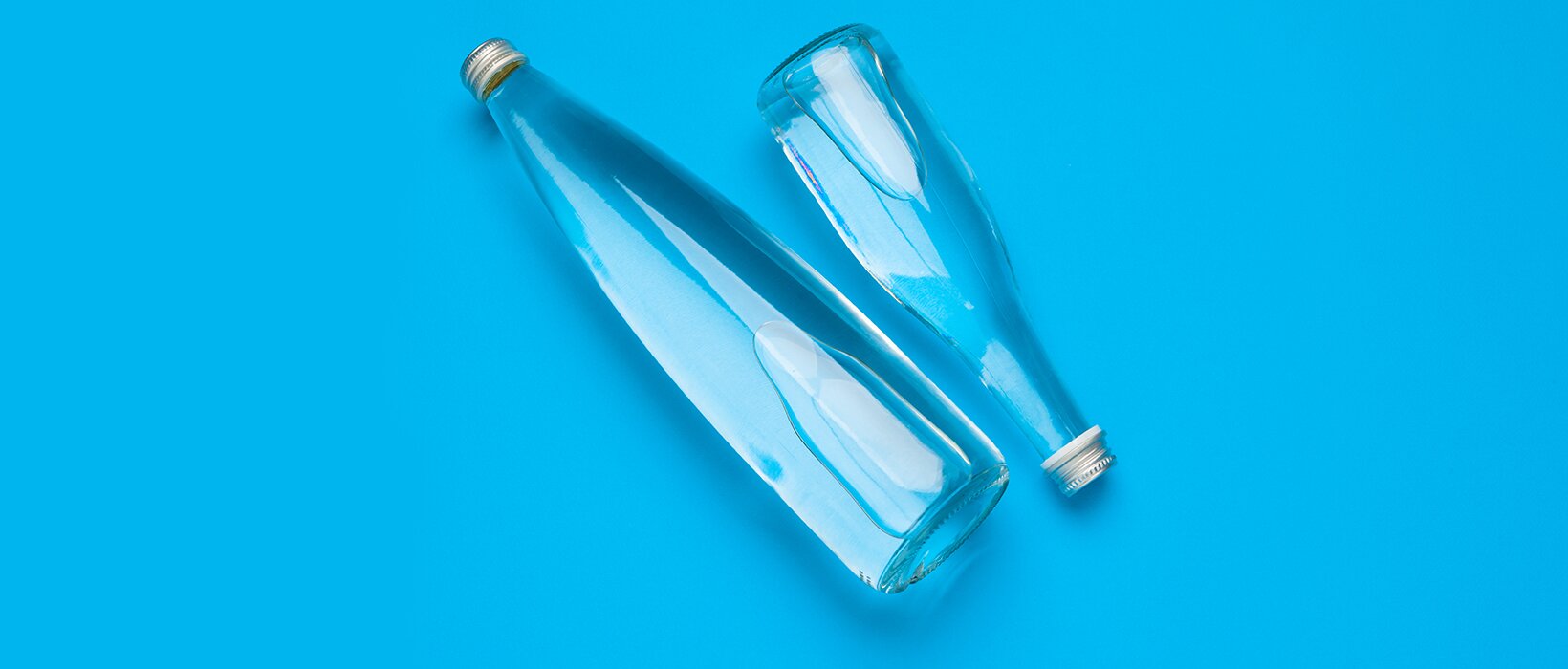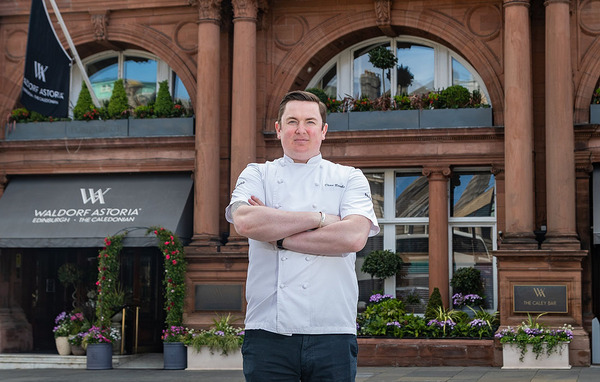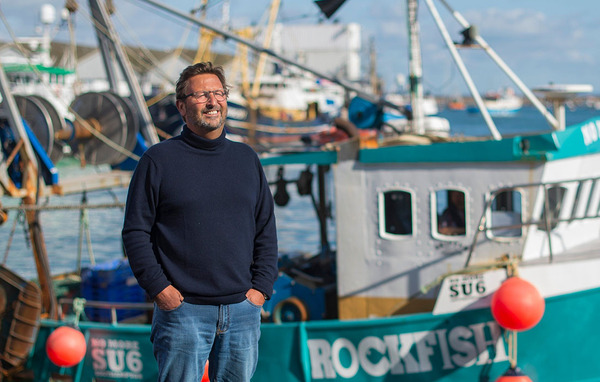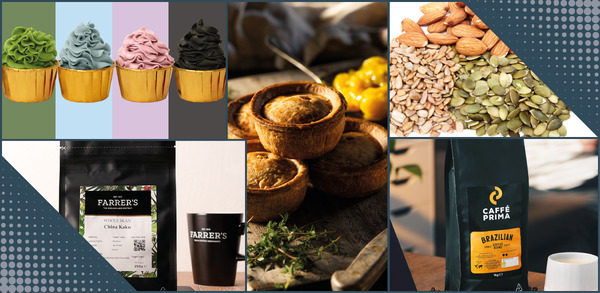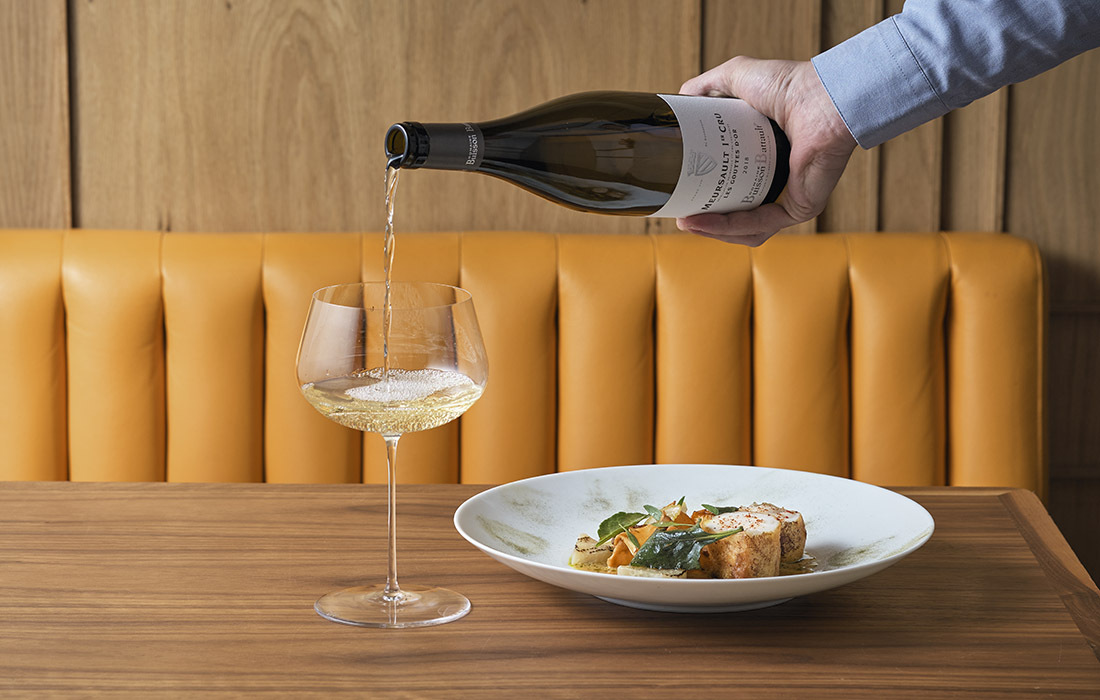Chemical attraction: the science behind the water in your coffee
If your coffee is not up to par, the fault may not be the beans, but the quality of your filtered water. Ian Boughton looks at the science behind taste.
A basic principle of beverages is that poor water gives you poor drinks. And while we are lucky in having drinkable water on tap, Britain’s water is a hazard to coffee brewing machines.
There are two aspects to this – one is that we now have several very skilful companies doing extremely good work in ensuring the quality of the trade’s brew water. The other is the continuing rise of in-house bottled water in the hospitality trade.
The trade does not have to be told that water filters exist. One supplier suggests that every single caterer in a hard-water area knows exactly what hard water does to their brewing equipment, and knows about expensive de-scale repairs, though he adds, curiously, that probably only a third of those in soft water areas consider they need any filtration.
Water that is ‘hard’ creates limescale, which leads to scale damage in a machine, and affects the taste of coffee; water that is soft may be corrosive, and may need chlorine or sediment removal. The problem is widespread in Britain: as our world barista champion James Hoffmann once remarked: “London water wants to kill coffee machines!”
Your water may be more to blame for poor coffee than your barista, agrees Scanomat. “When coffee tastes acidic, flat, bitter or vinegary, it is easy to assume it’s due to the coffee beans, when in fact it’s often the water quality,”says Scanomat’s Isabel Boulder.
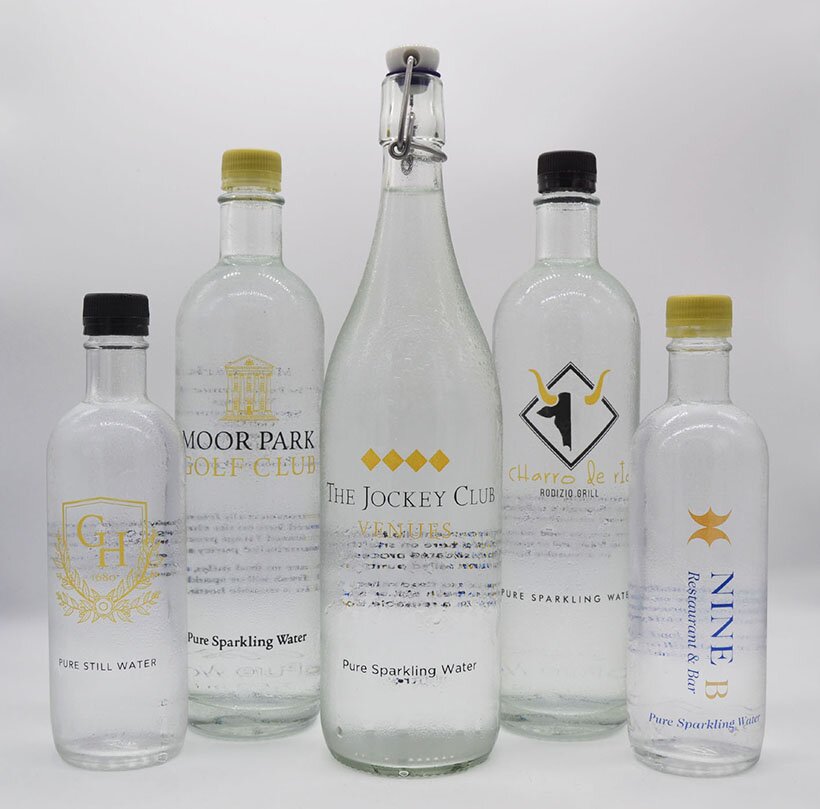
“Most conventional bean-to-cup coffee machines use water boilers to continuously heat water ready for the next drink, and this process of reheating for hours, days, or in some cases, weeks, leads to a loss of minerals and to sub-par water that leads to a poor cup of coffee.
“All our Top Brewer coffee machines are fitted with Brita filters, and the freshly filtered water is flash-heated for each drink, rather than reheated water from a water tank. This maintains the mineral content of the water.”
Consumers can tell the difference, says Samantha Scoles, business manager at Brita. “Three in 10 consumers don’t drink tea out-of-home due to the quality of water. The catering sector has to optimise its water supply just to keep up with competition on the high street.
“However, it’s important for operators to know that there’s no one-size-fits-all filter, as the mineral content in water varies drastically between regions, and even from street to street. Beverage operators must identify the best filter to suit the specific characteristics of their water to achieve a consistency of taste.”
Timing is everything
But it is also suggested that operators may not be using filters properly.
“The majority of the trade are now treating their water – the real question is, are they changing their filters at the right time?” asks Louie Salvoni, managing director at Espresso Service. “Many are not, leading to scaled-up machines. This is because suppliers have always told them to change every three months, or six months, or every year… though nobody really knew. So there are also some operators who are changing too often, whether their filters are exhausted or not!
“But what we now have is technology to measure the items which determine the quality of your water: flow, temperature and TDS, which is ‘total dissolved solids’, the mineral content. Through our Hydracs system, we now know to change filters when needed, not at a guess.”
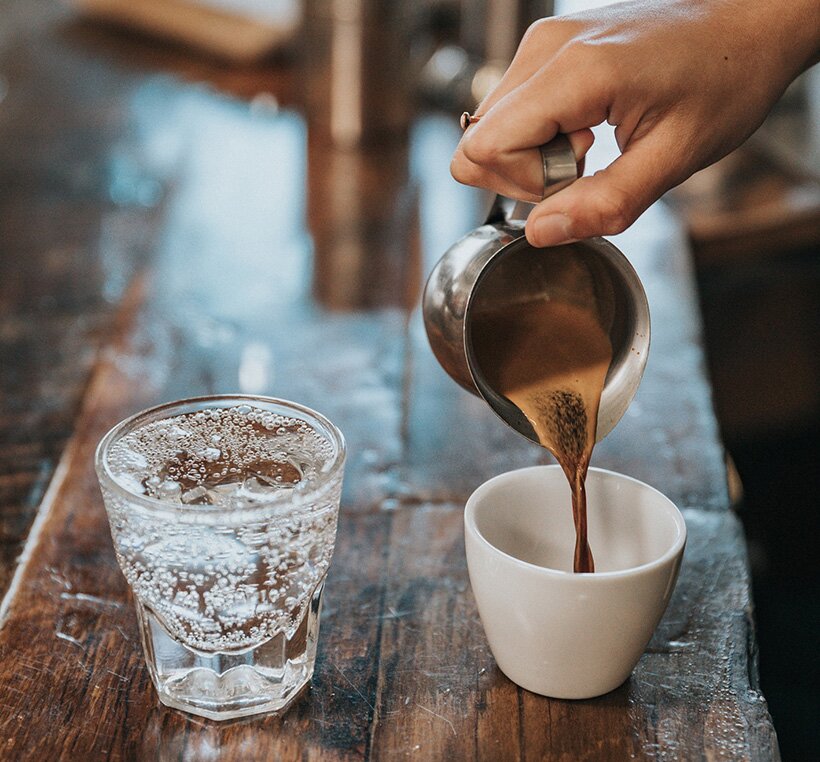
TDS is a measure of the ‘contaminants’ that occur in mains water. In the coffee trade, an accepted authority on this is Maxwell Colonna-Dashwood, a former British barista champion, who published one of the first scientific papers on water quality in coffee, and followed with his scholarly book Water For Coffee. His work shows that the idea of ‘hard water’ is often mistaken: it is the mineral composition of an operator’s local water that counts, or the ‘type of hardness’. And as water is often moved or ‘transferred’ around the UK, the state of local water quality is unreliable – this explains why the quality of the water in an area can change from one day to the next, and why coffee can taste different the next day. In turn, this means that a filter’s settings may become incorrect.
The Hydracs system constantly monitors incoming water, and can warn of any changes in the particle content of the water, showing how and when a water filter should be changed. “One fact that cannot be ignored is that coffee is 98% water,” says Anna Parrish, marketing manager at WaterCare. “It is fundamental that the water has to be of the same high quality as the other ingredients.”
One fact that cannot be ignored is that coffee is 98% water
However, the environmental friendliness of water filters has often been questioned, in that plastic filter cases are tossed into landfill. WaterCare has taken this up, and has produced the iX Water system, ‘the first truly eco-friendly, 100%-recyclable cartridge filter’, which she describes as “a genuinely sustainable and cost-effective alternative to mainstream cartridge water filters.”
A clear choice
WaterCare has also devised a free one-day course that offers beverage operators an appreciation of the issues involved with water. This also opens up the question of the caterer’s water for drinking, as opposed to brewing.
“When buying water bottles, you are paying for the plastic. A drinking-water filter is much more cost-effective and avoids plastic pollution – this is a much more environmentally friendly alternative.”
This has brought about new considerations concerning water for serving at table, agrees Brita. “Research suggests that one impact of Covid-19 is an increased demand for sustainability from consumers: 45% fewer people are buying bottled water for work or on-the-go.
“For caterers, one of the easiest ways to benefit from this, and reduce waste, is to swap the sale of water in single-use plastic bottles for a filtered water dispenser. With unlimited filtered water available, catering areas can serve chilled, filtered water to customers on-demand in bespoke reusable glass bottles.”
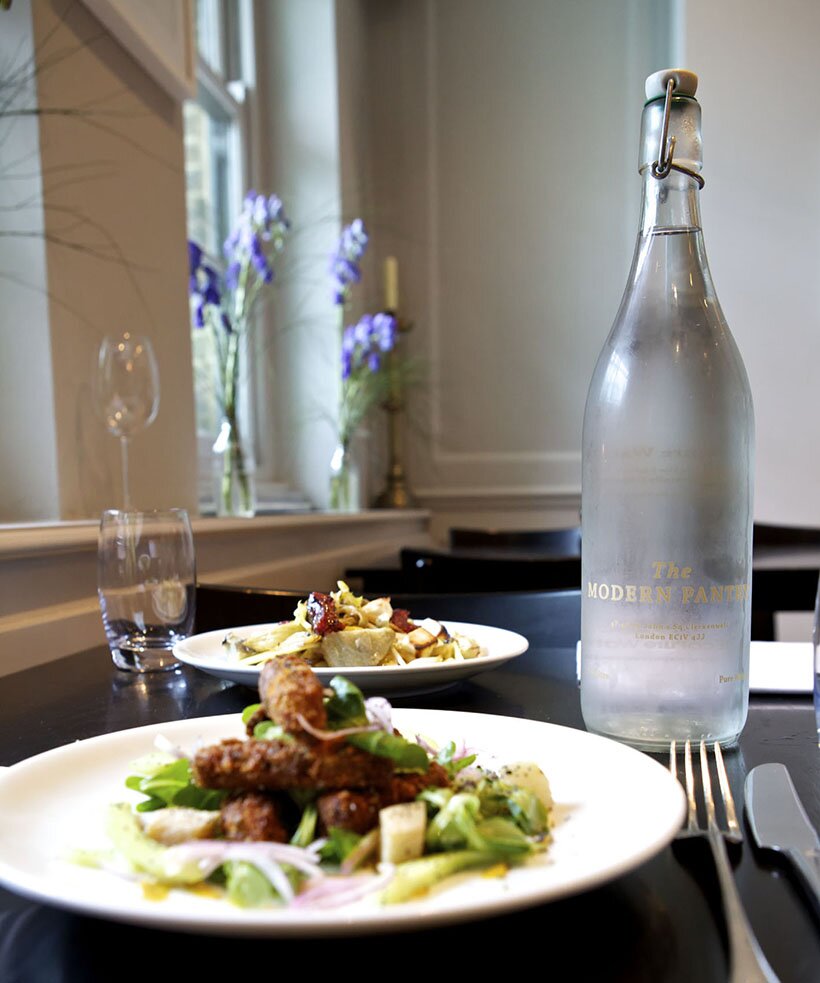
Some operators have been quick to see this, says EcoPure; while some have been unwilling to contemplate a change from using bottled water, others have seen that producing their own in-house filtered bottled water protects them from any supply problems.
“Your own filtered water in your own-brand bottles keeps your name and logo on the table right in front of customers, which is much better option than promoting someone else’s brand of bought-in bottled water,” says managing director Paul Proctor.
“The cost per litre is much less than buying in bottled water – at five or six litres daily, you’ll be saving money from the outset.”
It has never been easier to do this in hospitality, says Christopher Ashley, director of product development at Aqua Optima. “It doesn’t have to be a state-of-the-art filtration system: there are plenty of products such as water filter jugs for fridges, or water dispenser products, such as our Lumi chiller, which provides chilled, filtered water at the touch of a button. These are excellent for serving straight to the table.”
The concept of filtering at the point of dispense is becoming more and more relevant, as a lot more people are filtering at home, says Salvoni at Espresso Service. “The time has come to decide what you can do about the quality of your water at the point where it arrives on site.”
This switch to house bottled water creates some practical issues, notes Paul Anderson, managing director at Meiko: “Switching to providing guest water in reusable bottles creates a more tailored service and is a logical switch from single-use plastic, which is also why we are seeing more competition in the field of filtered water systems.
“If caterers want to use their own glass bottles, that means no more neatly packaged bundles of plastic, but it means a lot of transporting of much heavier and brittle glassware. It will create sustainable savings, but requires a decision on the type of reusable bottle to choose for serving the customer at table.”
In turn, he adds, this brings in the need for washing and sanitising, and says there has been a shortage of foodservice bottle-wash systems that wash both inside and out at the same time, which Meiko has now addressed.
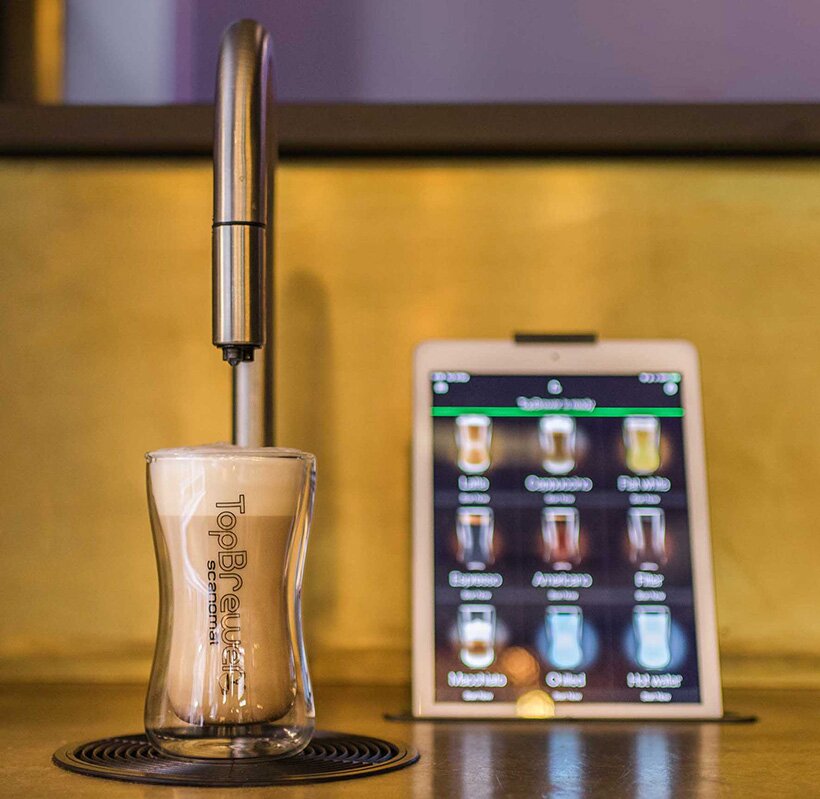
Straight from the source
Of course, bottled water brands disagree with the idea of in-house filtered bottled water.
“Research shows that 32% of consumers prefer the taste of natural-source water, and 21% say they do not enjoy tap water,” argues Nichola Grant, marketing manager at Highland Spring. “They are two fundamentally very different offerings.
“Natural source water is chosen by 48% of consumers as it is not chemically treated; it originates from a natural, identified underground source. Consumers can enjoy it without its taste or quality being altered.
“Try treating natural-source water as an aperitif by offering customers a complimentary drink on arrival.
“Suggest a large glass bottle of natural water for the table to share, or 330ml glass bottles work well for individuals. Ensure that your natural-source water has as much visibility on your menu as other beverages, and name the brand and the origin of the natural source water on your drinks list.”
As for the environmental argument, Highland Spring says it has launched the eco-bottle, made from fully recycled and recyclable plastic.
Suppliers
Aqua Optima www.aqua-optima.com 01624 829 829
Brita Professional www.brita.co.uk/professional 0844 742 4940
EcoPure Waters www.ecopurewaters.com 01844 290 088
Espresso Service/Hydracs www.espressoservice.co.uk/hydracs 02039 574961
Highland Spring www.highlandspring.com 01764 660500
Meiko www.meiko-uk.co.uk 01753 215120
Scanomat pro.topbrewer.com/uk 0800 032 7581
WaterCare www.watercare.co.uk 01279 780250



